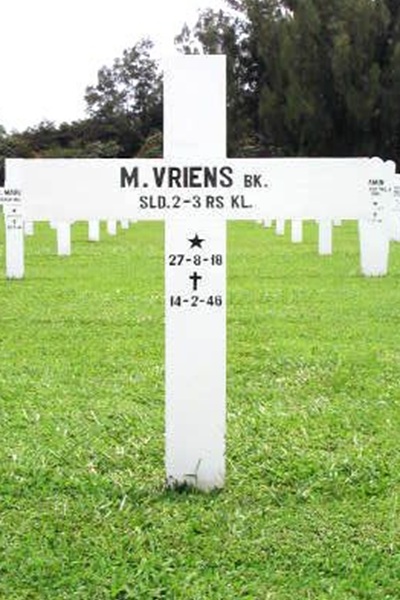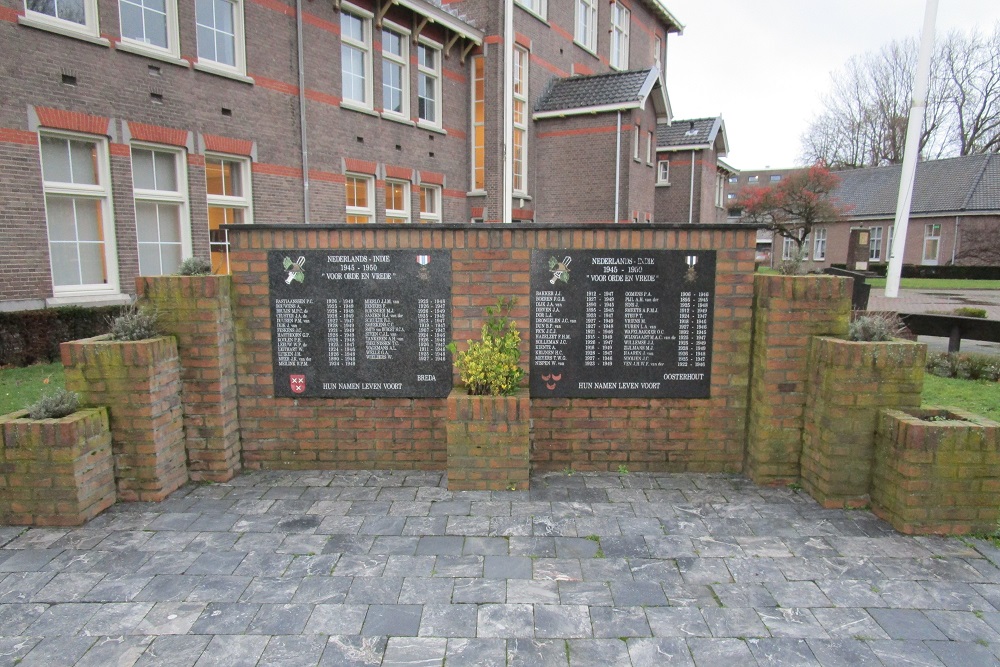Vriens, Martinus
- Date of birth:
- August 27th, 1918 (Bergen op Zoom/North Brabant, Netherlands)
- Date of death:
- February 14th, 1946 (Pangkalpinang/Bangka, Dutch Indies)
- Buried on:
- Dutch War Cemetery Pandu
Plot: II. Grave: 90. - Nationality:
- Dutch
Biography
Sld. 2-3-RS
Martinus was born on 27 August 1918 in Bergen op Zoom and lived in Breda. Shortly after the end of the war in Europe, he enlisted in the Medical Service and was assigned as a soldier-nurse to the 7 (III) Bataljon Stoottroepen, which was established in Vught in the summer of 1945.
Two days after the Japanese surrender on 15 August 1945, Soekarno and Mohammed Hatta proclaimed the independence of Indonesia. When, not long after, the British and Dutch appear to be preparing to restore the old colonial authority, the period of the Bersiap (“be prepared”) begins, during which foreigners and European and Indonesian Dutch citizens declared enemies become victims of violence and persecution.
To fulfil his military service, Martinus was sent to the Dutch East Indies to restore peace and Dutch authority in the archipelago. After receiving further equipment in Wokingham, England, he left for the Dutch East Indies on 12 October 1945 aboard the Alcantara.
However, Admiral Lord Mountbatten, commander-in-chief of the Allied South East Asia Command (SEAC), issued a landing ban for Dutch troops on Java and Sumatra with effect from 2 November 1945, forcing the Alcantara to divert to Malacca on the Malay coast, where it arrived at Camp Dusun Tua on 11 November 1945. With the landing ban, the British wanted to prevent the conflict in the archipelago from escalating into a large-scale war in which they would be drawn in with their troops stationed there. The island of Bangka off the coast of Sumatra fell outside the British blockade, allowing Martinus' unit to land there on 10 February 1946.
A few days later, on 14 February, Martinus was fatally wounded by enemy fire in Pangkalpinang while helping wounded soldiers. He was 27 years old and was posthumously awarded the Bronze Cross for his bravery. Martinus found his final resting place in Bandung at the Dutch military cemetery Pandu.
Do you have more information about this person? Inform us!
- Period:
- Second World War (1939-1945)
- Rank:
- Soldaat-ziekenverzorger
- Awarded on:
- April 22nd, 1948
Royal decree no. 77 (posthumously awarded)





